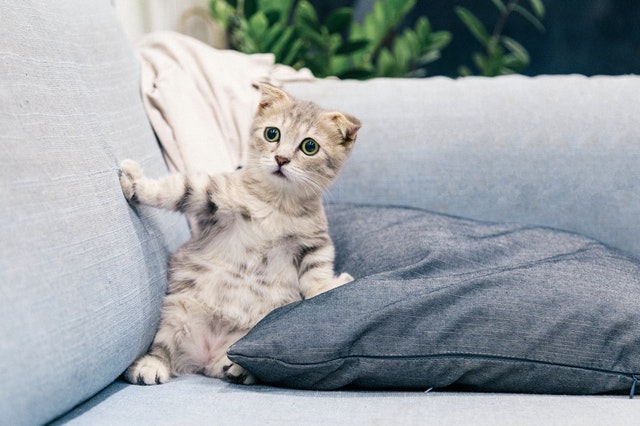Herbal medicines may be used to treat feline constipation.
Constipation in cats may be uncomfortable and even harmful for your pet. When a cat gets constipated, toxins cannot be expelled from the body, and many of these toxins are absorbed back into the cat’s system. It results in illness and may potentially induce disease and other major health complications.
If you don’t want to take your cat to the doctor or give him pricey medicine, there are some natural treatments you may use to address the issue. However, it must be performed within a few days after discovering the cat’s constipation. If this time has passed, you must take more severe steps using a medicine that only your veterinarian may give.
Maintain Cat Hydrated
Provide your cat with plenty of water. The water facilitates digestion and expedites the passage of food. If a cat does not take sufficient water, constipation may worsen. A water cycling system is your best option. It is a water dish with an associated water source. The running water prevents dust and other particles from accumulating and ensures that your pet always has access to clean water.
Feed Cats Fiber
Feed your cat diets high in fiber. Look for wet or dry cat food with high fiber content. The fiber aids in the digestion of meals, making it more straightforward to pass stool. On the side of the food’s packaging label is the quantity of fiber in grams. For constipation relief, the greater the amount of fiber, the better.
Give Cat a Herbal Laxative
Give your pet a herbal laxative, such as Natural Moves. In most herbal supplements and pet food shops, laxatives are comprised of various plants providing fiber and other nutrients that encourage good bowel function. Combine the supplement with a high-fiber meal. Wet food is simpler to prepare than dry (unless your pet eats fast and ignores what it is eating).
Follow the directions on the laxative, so you don’t give your pet more than necessary. Follow this procedure for many days. A few days later, your cat still hasn’t gone to the toilet properly; you should take it to your local veterinarian, as there may be a serious issue with its digestive system. The veterinarian subsequently recommends medicine or notifies you of a cure.

